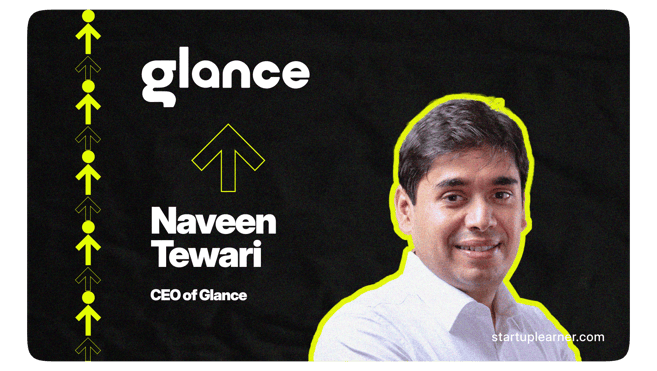Naveen Tewari: The Quiet Builder Behind India’s First Global Tech Unicorn — InMobi
FOUNDERS
Startup Learner
5/1/20252 min read



Introduction
Long before Indian startups were raising billion-dollar rounds or listing on public markets, Naveen Tewari quietly built InMobi, India’s first global tech unicorn.
While most were building for local users, he aimed for the world — and won.
This is the story of vision without borders, building tech that scaled across continents, and leading with quiet intensity.
Early Life and Background
Born in Kanpur, India, Naveen grew up in an academically strong family — his father was a professor at IIT.
He studied Mechanical Engineering at IIT Kanpur and later pursued an MBA from Harvard Business School.
After graduating, he worked with McKinsey and Kleiner Perkins — two of the world’s most respected institutions in consulting and venture capital.
But Naveen wanted to create, not just advise.
In 2007, he returned to India with a mission to build a global product company from scratch.
The Big Idea: From SMS Ads to Mobile Ad Tech Giant
InMobi started as mKhoj, an SMS-based ad solution focused on emerging markets like India and Southeast Asia.
The initial idea was simple:
Help advertisers reach users via SMS in countries with limited internet access.
But as smartphones rose globally, Naveen and his team pivoted — and mKhoj became InMobi, a full-fledged mobile advertising platform.
Their big bet?
Mobile ads were going to be the future — not just on Google and Facebook, but across apps, games, and content.
InMobi built tools for:
App developers to monetize their traffic
Advertisers to reach mobile users with precision
Brands to run performance and video campaigns globally
Building the Company: Global From Day One
Unlike many Indian startups that focused on local growth first, Naveen built InMobi with a global-first mindset.
They set up offices in:
San Francisco
London
Singapore
Tokyo
Nairobi
InMobi became a mobile ad tech alternative to Google, offering real-time bidding, data analytics, and creative formats.
By 2011, InMobi raised $200 million from SoftBank, marking India’s first global tech unicorn — years before Flipkart or Paytm reached similar status.
Naveen made two bold decisions:
No dependence on India alone.
Product-first, not just sales-first.
That made InMobi a serious player in the ad tech ecosystem.
Lessons for Founders
Naveen Tewari’s journey is packed with founder insights:
1. Build global from the beginning.
Don’t limit your ambition based on where you were born.
2. Pivot with data, not ego.
From mKhoj to InMobi, the pivot to mobile ads was timing + insight.
3. Stay product-obsessed.
InMobi invested deeply in R&D, building its own ad stack and data engine.
4. Capital is leverage, not crutch.
InMobi didn’t chase headlines — it raised when needed and scaled smart.
5. Think beyond unicorns.
Naveen focused on long-term, profitable, real business — not just valuation highs.
The Impact
InMobi opened the doors for Indian founders to dream beyond domestic markets.
It proved that deep tech from India could serve global brands.
It created a strong ad tech alternative to Silicon Valley giants.
It inspired new-age B2B startups like CleverTap, MoEngage, and BrowserStack to go global.
In 2019, InMobi spun out Glance, a content discovery platform that appears on Android lock screens — and raised over $145M from Google and Mithril Capital.
Even after a decade, Naveen and his team are still innovating — now exploring AI-driven advertising, smart content, and mobile commerce.
Conclusion
Naveen Tewari didn’t just build a unicorn — he built belief.
That Indian founders can build global-first tech, go toe-to-toe with the best, and win with product, not press.
For startup builders, his story teaches:
If you build for the world, the world will eventually take notice.
And sometimes, the best founders don’t shout — they just quietly ship, scale, and sustain.



